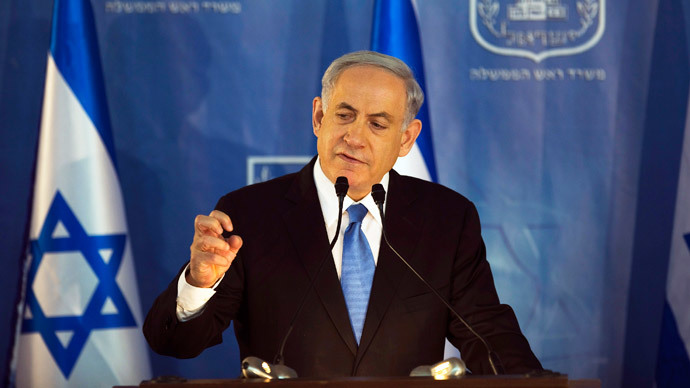News Analysis |
Israeli Prime Minister Benjamin Netanyahu, on Monday, unveiled a database of files which he claimed to have been containing crucial information about Iran’s “Project Amad”. The project, as mentioned in the report by International Atomic Energy Agency (IAEA) in 2015, was initiated in Iran back in 1980 with the ultimate ambition of making a nuclear bomb. Prime Minister Netanyahu blasted over Iran’s dormant craving to become a nuclear power which it has been pursuing for a very long time.
The documents, however, reveal nothing about any breach of 2015 Join Comprehensive Plan of Action (JCPOA) which Iran could be indicted for. The 2015 agreement was signed between Iran, the US, China, Russia, Germany, France and Britain and it lifted crippling economic sanctions in return for curbs on Tehran’s nuclear program. Responding to Netanyahu’s allegations, Foreign Minister of Iran Jawad Zareef termed them as baseless calling Netanyahu a “liar”.
The orchestrated move to make Iran’s intentions and nuclear deal a subject of controversy can help Israel in the long run in strategic and geopolitical paradigm.
Israeli Prime Minister Benjamin Netanyahu has been critical to Joint Comprehensive Plan of Action (JCPOA) from the very beginning. Since the agreement is considered to be a landmark achievement of President Obama’s 8-year tenure, he never got the requisite support from previous US administration to bring down the deal. But now Netanyahu has got a US president who shares the same whim about the prospects of the nuclear deal.
Read more: Corruption charges haunt Netanyahu’s presidential future
Both of them conceive that the deal is inadequate to put a full stop toward Iran’s dream of building nukes. They believe once the deal comes to its climax, Iran will have essential knowledge to build a nuclear bombs within no time, with the ability to mount them on smart missiles. As Iran’s missile program does not fall under the jurisdiction of deal’s clauses, it is free to carry out research to enhance its warhead delivery systems.
The revelations, on the other hand, did not make the European signatories of the deal to share the same enthusiasm as Netanyahu and Donald Trump, for that matter, do. France, Germany, and Britain were already nagging to President Trump’s outburst against the deal and his intentions to revoke it before May 12, 2018. As per the IAEA inspections, a United Nations delegated watchdog to monitor the activities concerning nuclear non-proliferation, Iran has been holding its end of the deal so far.
Since the revelations from Israeli Prime Ministers, even if they are true, speak nothing about contemporary intentions of Iran and pose just to be a history lesson, it did not move other stakeholders much. It was precisely the reason why, that the world already knew what Iran was up to, an arduous series of negotiations between Iran and other world powers lead to the inking of 2015 nuclear deal.
President Donald Trump had warned that the US will abandon the deal on 12 May, the deadline to waive off the remaining economic sanctions on Iran, unless European signatories to the deal and Congress address his concerns. It can be said with absolute certainty that the move on part of Israel, particularly the time at which it has come, is to persuade the United States that moving away from the deal would be the best thing to do.
The project, as mentioned in the report by International Atomic Energy Agency (IAEA) in 2015, was initiated in Iran back in 1980 with the ultimate ambition of making a nuclear bomb.
Despite inconclusive nature of the evidence which is being presented by Israel, it might result in termination of Iran’s nuclear deal. The only person, other than Israeli Prime Minister, who despises the agreement is the one who has the power to revoke it, President Donald Trump.
Read more: Natalie Portman refuses to attend Jewish Prize Ceremony over Netanyahu
Iran and Israel, the conventional enemies, are at war with each other in Syria. Due to its support for Assad regime, Iran has been the reason for the influx of Shia proxies who are fighting alongside government forces. Since Israel along with its ally United States of America are backing rebels, the tensions between two countries are skyrocketing.
After the attempts to topple the Syrian President Bashar al Assad failed, Iran has consolidated its influence further in the region. Iran supplies weaponry to Hezbollah, a Shia militia group, in southern Lebanon, much of which is routed through Syria. The orchestrated move to make Iran’s intentions and nuclear deal a subject of controversy can help Israel in the long run in strategic and geopolitical paradigm.














